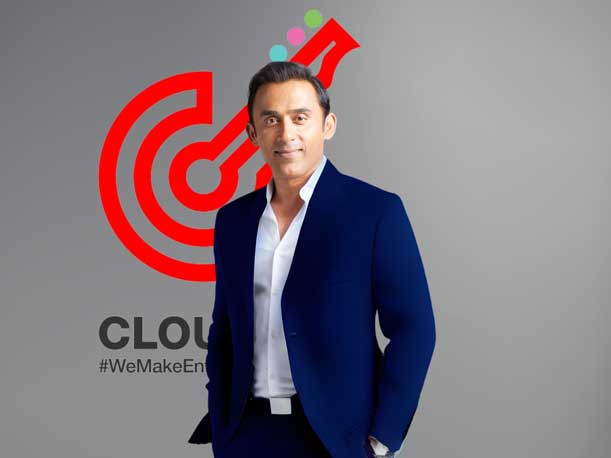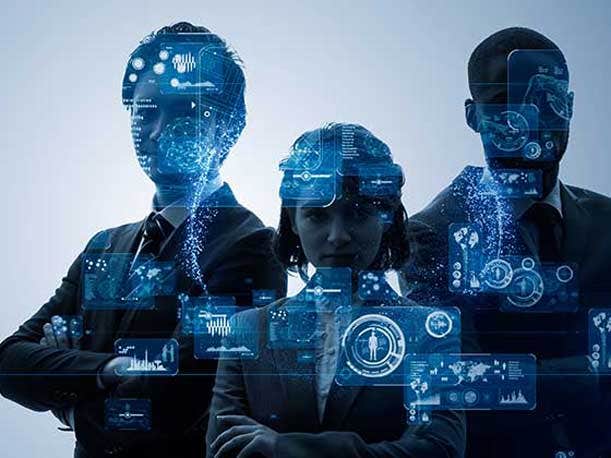AI Guru Explains 7 Hot AI Customer Use Cases In 2024: Cloudsufi CEO
From sustainability and entertainment to cutting medical costs and boosting students education, here are seven AI use cases customers are clamoring for in 2024, says Google Cloud AI partner Cloudsufi.

After annual revenue spiked 50 percent in 2023, AI company Cloudsufi is having a wealth of conversations with customers in 2024 looking to leverage artificial intelligence and generative AI in a variety of ways—from government ethics and environmental sustainability to reducing medical costs and reimagining the workforce.
“Customers aren’t talking to us just about, ‘Buy a tool for me. Buy cloud consumption for me.’ No. We’re making them reimagine everything they can do,” said Irfan Khan, CEO and president of Cloudsufi. “The benefits of AI are truly phenomenal.”
Cloudsufi is a San Jose, Calif.-based supply chain AI specialist that is one of Google Cloud’s most innovative channel partners when it comes to GenAI and artificial intelligence. Last year, Cloudsufi partnered with Google to launch a new Generative AI Innovation Lab with over 500 AI professionals focused on empowering customers to build and leverage generative AI solutions.
“This year we’re talking about, ‘How do you make customers imagine their supply chain to be anti-fragile and powered by AI, which is basically doable right now for us,” Khan said.
[Related: Google’s AI Bard And Duet Become Gemini; $20 Per Month For Ultra]
‘AI Is Preventing The Widening Of The Digital Divide’
Cloudsufi’s CEO is an AI and data guru who’s been in the industry for 30 years, including being the former CEO of AI application services company Bristlecone. He believes AI will change the way businesses operate and even human culture.
“AI is preventing the widening of the digital divide. The uneven distribution of AI benefits could really impact negative economic disparities. But right now, it’s bridging the gap,” Khan said.
Khan said Cloudsufi is “right in the middle of the storm” as the whole world will be impacted by AI. “Our job as Cloudsufi is make sure that unstructured data doesn’t get lost in the process,” he said.
In an interview with CRN, Khan breaks down seven AI use cases the majority of Cloudsufi customers are seeking in 2024, including in the education, healthcare, entertainment, and network connectivity markets.

AI To Make Healthcare More Accessible And Easier For Providers
One big use case we’re seeing is around how do you make healthcare more accessible? So how can we fundamentally change how healthcare services are delivered?
We have a customer who’s basically setting up a training engine—it’s fairly large cancer hospital—and they want to train an AI engine that trains their nurses and staff to actually interpret data for doctors before they even go to doctors.
For example, they shouldn’t just note a few things down. They should also note down some unstructured data too. They have this AI tool assistant and they’re rolling them out in scale right now.
This AI tool can allow them more time to interact with their customers. So every time a nurse spends less time on their notebook, they spend more time looking at the patient.
So healthcare, like application healthcare, is a good use case. There’s a heavy influence on diagnostic tools, personalized medicines—conversational robotic surgery is very exciting, but still early stages right—and of course, how do you reduce costs of medication?

AI Solving Government Ethics Issues
Ethics in the government sector is another good use case. We are expanding in the federal space now. AI ethics in government is a conversation that’s occurring right now.
We know that AI becomes—and will become—more integrated into decision making process around: ethical consideration, common framework, as well as issues like bias, privacy, accountability.
Enhanced Network Connectivity
There’s enhanced connectivity in AI.
We’re speaking with a big telco from Europe right now, where they are looking at the integration of AI with technologies like 5G, IoT and how do you make smarter cities? Energy efficiency, transportation and urban services are all associated.
We’re working with a team in Finland right now in Helsinki where they’re looking at, ‘How are urban services going to change?’ We’re having early conversation with them like that. These are interesting use cases.

How AI Changes The Workforce
Customers are asking, ‘How does AI changes the future of work?’ in a strategic way.
So there are customers who are asking, ‘How do you automate this? How do I make this faster?’ But the truly strategic question customers are asking is, ‘How does automation regarding the future of work change? What can you do about this right now for us?’
They are all saying that AI and roboticw are automating tasks across the industry—from manufacturing to services. The trend can lead to significant employment shifts right now.
So the kind of work we’re doing right now is sometimes we’re letting them imagine, ‘How do you create new jobs and increase efficiency and productivity?’
It doesn’t mean people will go out of jobs.
It means there’ll be a new set of workforces that gets created which is very different than what it is right now.

Changing Culture, Digital Interactions And Entertainment With AI
Entertainment and creativity is a great use case. The reason why I feel AI in entertainment and creativity is so important is because—besides creating a new form of entertainment and personalized content, and all that stuff—think about it: this could fundamentally change how culture and leisure activities are produced and consumed.
That means we are fundamentally changing the way we can share the culture to the next generation of people. It’s a very powerful thing to do it.
Social interaction of AI is a conversation we’re having right now.
Social media companies really want to change how people interact with each other with technology influencing social relationships and communication patterns. I still am on the border on that to be honest. AI is becoming more capable of natural language, processing image recognition, etc. it might take time, but it’s a very powerful thing.

AI Creates Tailored Education For Individual Students’
There’s big changes right now in education. It’s around, ‘How can AI adapt to individual students need.’
When I was a kid, there’s a certain way I would learn which was very unconventional. I had to write it down, but I had to learn it from a template which was meant for everyone.
So individual student needs with AI, potentially has the ability to transform education by making it more effective. We’re also looking at, “Can AI assist the teachers?”
There’s AI tools that can assist teachers with grading, administrative tasks, and allowing them more time to interact with their students.

Environmental Sustainability
Environmental sustainability talks are increasing with customers around the world.
Those use cases are very pivotal around: managing natural resources, environmental mitigation, environment degradation. We’re working with a university in Australia, where we’ll be putting a paper together about how well AI and environmental sustainability could be put together.
[Google Cloud’s] commitment to sustainability is something customers are like right now, that carbon neutral piece.